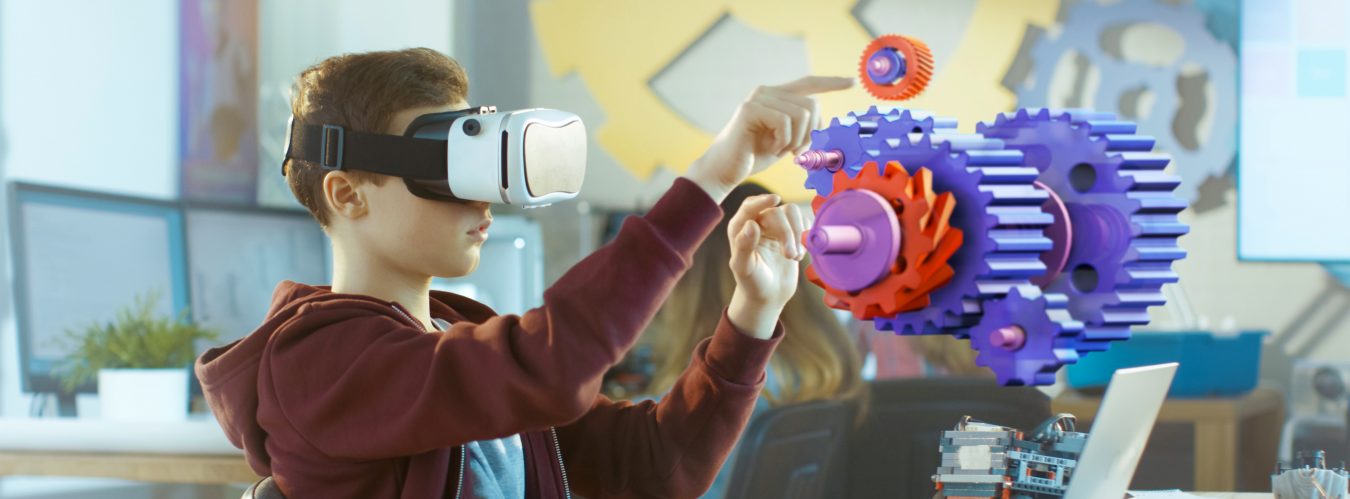
What is Virtual Reality (VR)?
Here in the Digital Learning team, we are constantly looking into new tools and technologies that will enhance education. This year was no exception as we invested time and effort into the world of Virtual Reality (VR).
Earlier this year, we bought 4 Oculus Go headsets with which we experimented and developed some 360 videos captured from the Biological Sciences field trips to demo on Open days. The reaction we received from both students and staff was very positive, so we decided to invest in VR further with the purchase of the HTC Vive, a more powerful and immersive unit.
So what is virtual reality? Well, simply by wearing the headset, the user is transported from the real world into a simulated 3D environment. Using the hand held controllers, they are able to move and interact with objects by pointing and selecting.
Why VR important in education?
As technology evolves, so do the opportunities for how we learn. Experiential learning, learning by doing, reflection and discussion is one way forward and VR is the tool that can meet these needs.
The main advantage for using VR as an educational tool is that training can be conducted within a safe environment. For example, virtual patient simulations enable medical students to practice their clinical skills and knowledge within a controlled environment with no devastating outcomes. The immersive nature of VR will enable students to become familiar with an environment prior to the real thing.
VR as a learning tool will also enable students to visit places that may be restricted due to costs, accessibility or safety; VR makes it possible to explore places from ocean trenches to a trip into space. The possibilities are endless.
A not so adventurous experience I recently encountered on the Oculus Go headset was a visit to Anne Frank house. Although this is available on the desktop, viewing it in a VR environment is altogether a different experience. I really felt as if I was transported back to the 1940’s looking around the house that Anne Frank hid in for so many years.
But isn’t VR just playing games?
Not necessarily. Although gamers are the main target audience for VR, it is adopted in many other disciplines such as:
Military: Flight and battlefield simulations.
Mental health: Used to treat anxiety, phobias or depression.
Medical training: Virtual patients, simulated surgeries and procedures.
Education: Simulations of labs and workshops can reduce cost and enabled students to practise within a safe environment. VR can be adopted in situations such as problem based or case based learning.
Can I have a go?
Seeing is believing! VR is an amazing experience, I would thoroughly encourage you to have a go.
Digital Learning team will be at the CHEP Festival on Wednesday 18th September demonstrating a few VR projects that have been developed for faculties. Please do come along and try out some fun as well as serious stuff.
If you have any questions about VR or if you would like to have a go, please contact us at digital-learning@southampton.ac.uk for more info.


